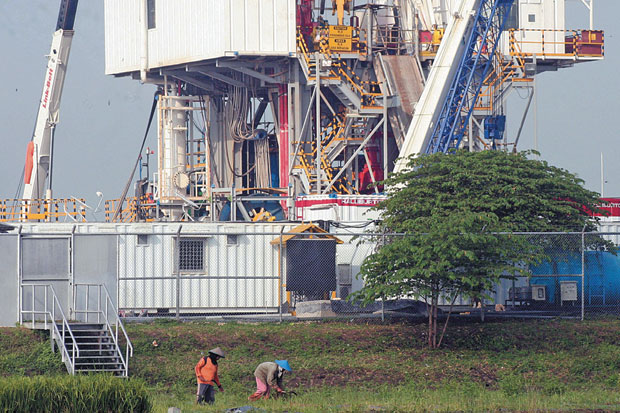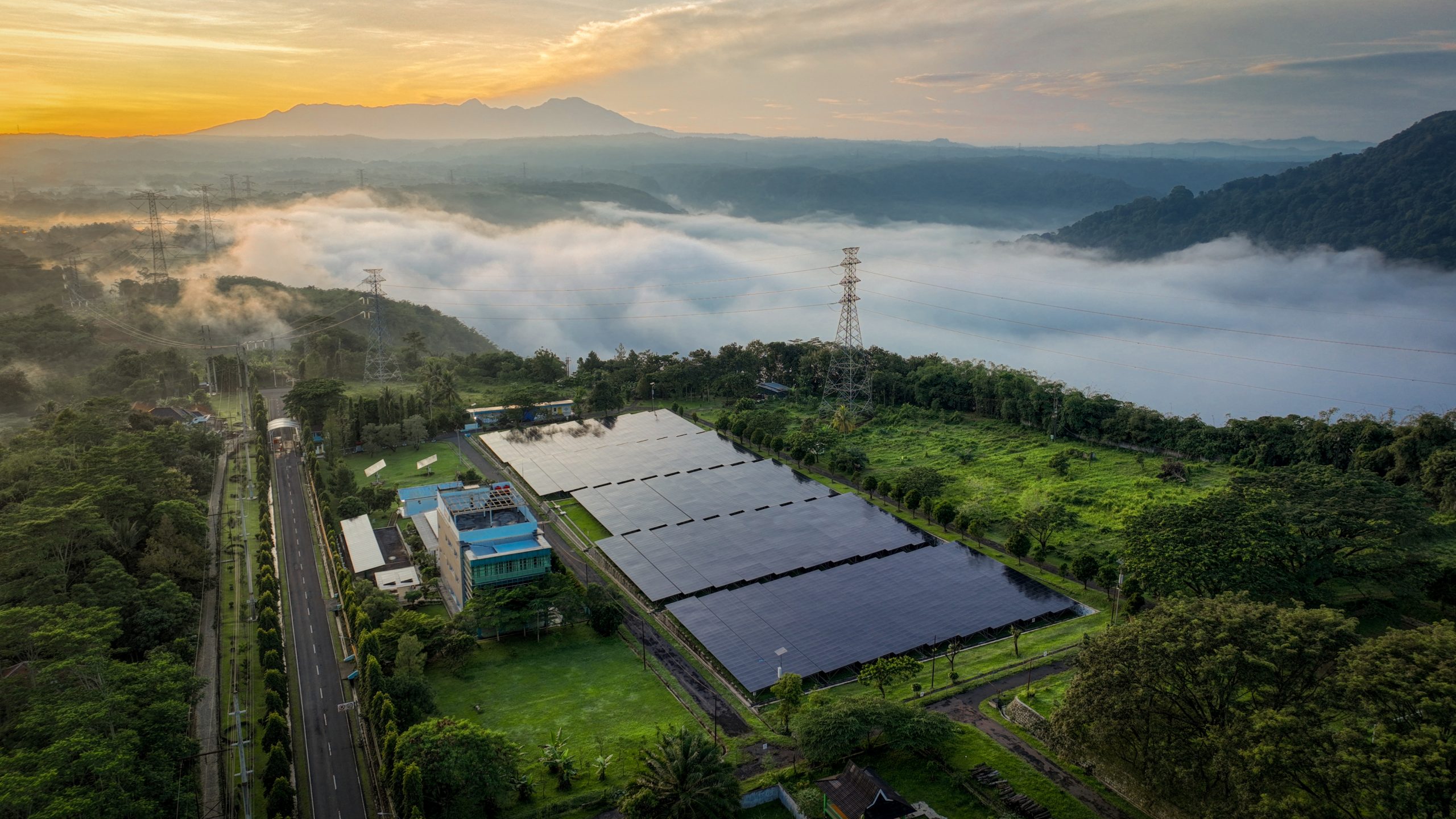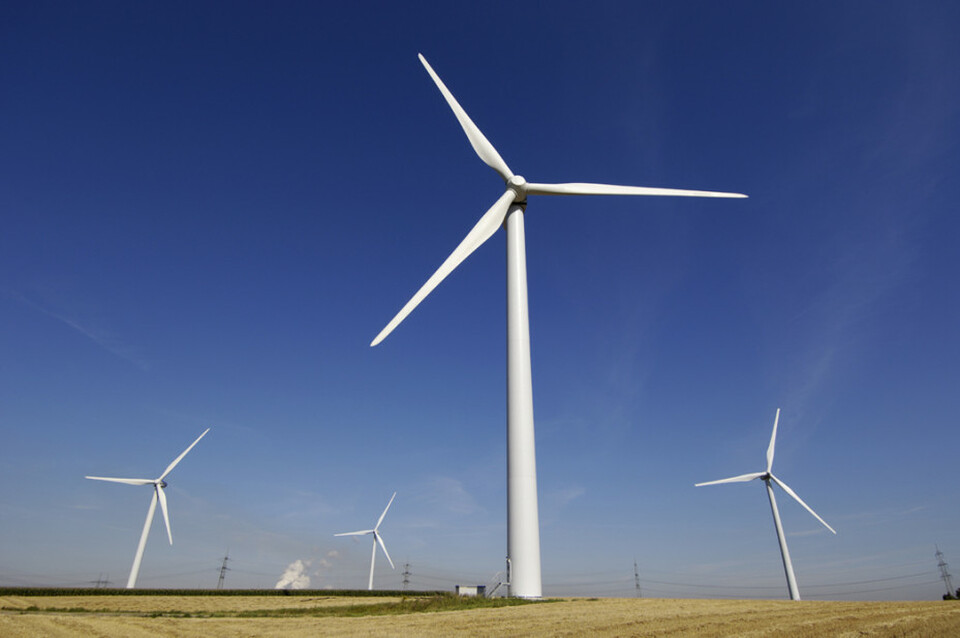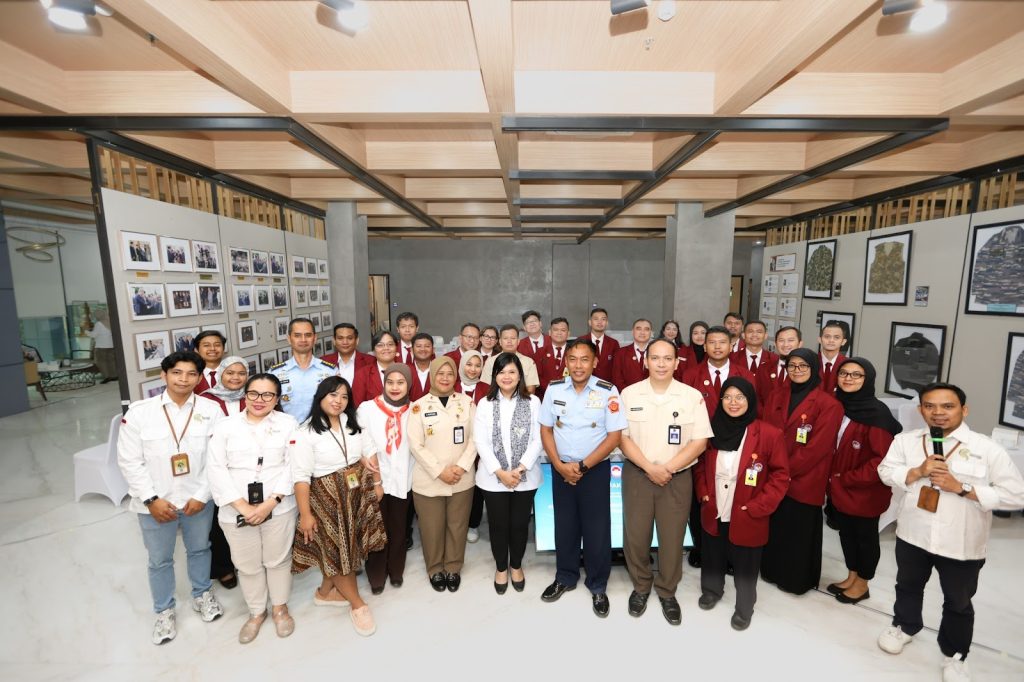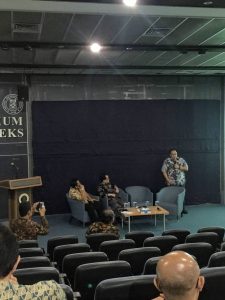
Figure 1. Pandu Patria Sjahrir (Head of Indonesian Coal Mining Association) and Prof. Irwandy Arif presented their perspectives on coal industry development
Coal is one of the commodities that affect Indonesia’s non-tax revenue. At the same time, Indonesia is one of the countries that has made a commitment to decrease their carbon emission by signing the Paris agreement in 2016. Therefore, the coal industry development in Indonesia became an interesting topic to be discussed. On 29 March 2019, Institut Teknologi Bandung Professor’s forum hosted Indonesia’s coal development discussion in Bandung. This forum invited Prof. Irwandy Arif (Lecturer) and Pandu Patria Sjahrir (Head of Indonesian Coal Mining Association) to share their thoughts.
In the first session, Prof. Irwandy Arif mentioned that Indonesia’s coal reserve was approximately around 37 billion tons. However, on the corporate level, there were only few companies that owned a massive reserve. This commodity was mostly reserved for the domestic market (70%) especially for power plants and the rest was exported to other countries. As the industry developed, there were some problems that boiled down to unstable political environment and social issues. These problems must be solved by the government and the rest of the world in order to achieve a stable environment for the coal industry. In the future, the coal demand would stay on the top due to steam power plant development in 25 countries and most of them were in Asia. Also, the development of “clean coal” by Carbon Capture Storage and Carbon Capture Utilization Storage as well as Dimethyl Ether (DME) in Indonesia were also essential as the technology increases the value for coal and supports carbon emission reduction.
In the second session, Pandu Patria Sjahrir mentioned that the electrical consumption per capita in Indonesia (0,8 MWh/capita) is lower than Thailand (2,5 MWh/capita) and Vietnam (1,4 MWh/capita) even though the infrastructure and economic situation in these countries were similar. Coal investment offered a better solution for lack of needed consumption. In relation to the coal industry development in Indonesia, he highlighted that the highest price for the coal with low calories (used as the source for power plant) was much lower compared to the market price. Therefore, other countries that are interested in buying our coal resisted to buy unless the price was similar to Indonesia local price.
Furthermore, coal industries were overshadowed by regulation to secure domestic supply amounting to 25% of coal production. This requirement became an issue for certain miners whose products were unsuited for domestic needs. As a result, some coal miners purchase DMO Credits from other miners that had exceeded their DMO. Nevertheless, considering actual domestic market consumption was only 95% of the initial target, a fine will still be applied.
